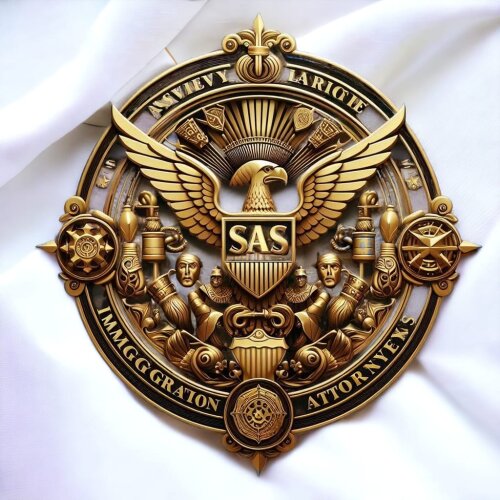Best Legal Document Lawyers in Bogota
Share your needs with us, get contacted by law firms.
Free. Takes 2 min.
List of the best lawyers in Bogota, Colombia
About Legal Document Law in Bogota, Colombia
Legal documents are fundamental to both personal and professional transactions in Bogota, Colombia. These documents include contracts, powers of attorney, affidavits, wills, property deeds, and more. Colombian law establishes formal requirements for different types of legal documents to ensure their validity and enforceability. Many legal processes such as buying property, setting up a business, or managing inheritance matters require correctly drafted and authenticated legal documents. Legal document law in Bogota not only dictates the structure and format of such documents but also mandates procedures like notarization and registration where applicable.
Why You May Need a Lawyer
Seeking legal advice for matters related to legal documents can save time, prevent costly mistakes, and ensure compliance with local regulations. Common situations in Bogota where people might require help from a lawyer regarding legal documents include:
- Buying or selling property and needing to draft or review sales agreements
- Establishing a business or partnership that involves formal contracts and registration documents
- Handling inheritance or succession matters, such as making or executing wills
- Granting powers of attorney for financial, property, or personal matters
- Entering into marriage, divorce, or child custody agreements that require legal documentation
- Drafting or reviewing employment contracts
- Authenticating documents for use abroad (apostilles and legalizations)
- Resolving disputes arising from contractual misunderstandings
- Notarizing official statements or affidavits
- Protecting intellectual property through registration and documentation
Local Laws Overview
In Bogota, the management of legal documents is governed by the Colombian Civil Code, the Commercial Code, and other specific legislation depending on the type of document. Key aspects to understand include:
- Notarization: Many legal documents must be notarized by a Colombian notary to be valid, especially documents involving property, contracts with significant economic value, and civil status changes.
- Registration: Some documents, such as property transfers or company formations, must be formally registered with government agencies such as the Superintendence of Notaries and Registration.
- Language: Legal documents must generally be in Spanish or accompanied by an official translation to be recognized by Colombian authorities.
- Authentication for international use: Documents intended for use outside Colombia often require an apostille (for countries in the Hague Apostille Convention) or legalization by the Ministry of Foreign Affairs.
- Digital signatures: Legislation allows for electronic signatures in certain types of documents, provided specific security standards are met.
- Compliance with public order and good customs: Documents cannot contain clauses that contravene Colombian law, public morals, or public policy.
Frequently Asked Questions
What is notarization and when is it required in Bogota?
Notarization is the process where a Colombian notary verifies the authenticity of a document and the identity of the signing parties. It is commonly required for property sales, marriage contracts, certain types of powers of attorney, and other significant legal agreements.
Can I draft my own legal document without a lawyer?
While you can draft your own legal documents, consulting a lawyer ensures your document is legally valid, correctly worded, and provides the intended protection or effect under Colombian law.
What types of documents must be registered with public authorities?
Documents such as property deeds, incorporation acts for companies, and official powers of attorney often need to be registered with the appropriate public office to have legal effect.
Do legal documents in Colombia have to be in Spanish?
Yes, legal documents for use in Colombia should be in Spanish. If the original is in another language, an official translation by a certified translator is generally required.
What is an apostille and when might I need one?
An apostille is a certification that authenticates a document for use in another country that is part of the Hague Apostille Convention. It is necessary for documents like birth certificates, degrees, or contracts if they are to be used abroad.
How do I ensure that a contract is legally valid in Colombia?
A contract must meet the formal and substantive requirements set out by Colombian law, such as the capacity of parties, lawful purpose, mutual consent, and the required form, like notarization or registration if applicable.
Are electronic signatures legally binding in Bogota?
Electronic signatures are recognized in Colombia for many types of documents, provided they meet security and authentication requirements established by national regulations.
What should I do if my legal document contains a mistake?
If a notarized or registered document contains an error, you may need to request a correction through the relevant notary or public office, and sometimes a new document must be created.
Do I need a lawyer to create a will in Bogota?
Although it is possible to make a will without a lawyer, legal advice is strongly recommended to ensure all formalities are met and your wishes are clearly documented according to the law.
Where can I file a legal document for official record in Bogota?
Many legal documents are recorded at the local notary office or, for public registry purposes, submitted to the Superintendence of Notaries and Registration or the Chamber of Commerce for commercial entities.
Additional Resources
For additional guidance and official information about legal documents in Bogota, these resources may be helpful:
- Superintendence of Notaries and Registration (Superintendencia de Notariado y Registro) – authority for property and notarial matters
- Colombian Ministry of Foreign Affairs – for apostilles and international document legalization
- Bogota Chamber of Commerce (Cámara de Comercio de Bogotá) – for business-related legal documents
- Local notary offices – for notarization and document assistance
- Bar Associations and legal aid clinics – for free or low-cost legal guidance
Next Steps
If you need legal assistance regarding legal documents in Bogota, the following steps are recommended:
- Gather all relevant information and existing documents related to your matter
- Consult with a qualified lawyer or legal expert who specializes in the type of document you require
- Visit a notary office for authentication or guidance regarding notarization requirements
- Ensure that your documents meet language, format, and legal standards for their intended use
- If your document will be used internationally, inquire about the process for obtaining an apostille or legalization
- Consider contacting public bodies or using available legal aid services if you have limited resources
Understanding and properly handling legal documents is critical for your rights and interests in Bogota. Legal support can help ensure that all steps are completed securely and in compliance with the law.
Lawzana helps you find the best lawyers and law firms in Bogota through a curated and pre-screened list of qualified legal professionals. Our platform offers rankings and detailed profiles of attorneys and law firms, allowing you to compare based on practice areas, including Legal Document, experience, and client feedback.
Each profile includes a description of the firm's areas of practice, client reviews, team members and partners, year of establishment, spoken languages, office locations, contact information, social media presence, and any published articles or resources. Most firms on our platform speak English and are experienced in both local and international legal matters.
Get a quote from top-rated law firms in Bogota, Colombia — quickly, securely, and without unnecessary hassle.
Disclaimer:
The information provided on this page is for general informational purposes only and does not constitute legal advice. While we strive to ensure the accuracy and relevance of the content, legal information may change over time, and interpretations of the law can vary. You should always consult with a qualified legal professional for advice specific to your situation.
We disclaim all liability for actions taken or not taken based on the content of this page. If you believe any information is incorrect or outdated, please contact us, and we will review and update it where appropriate.














